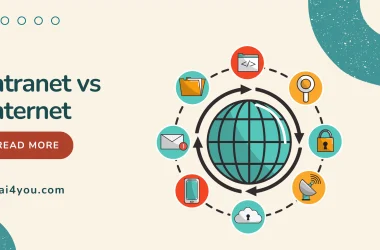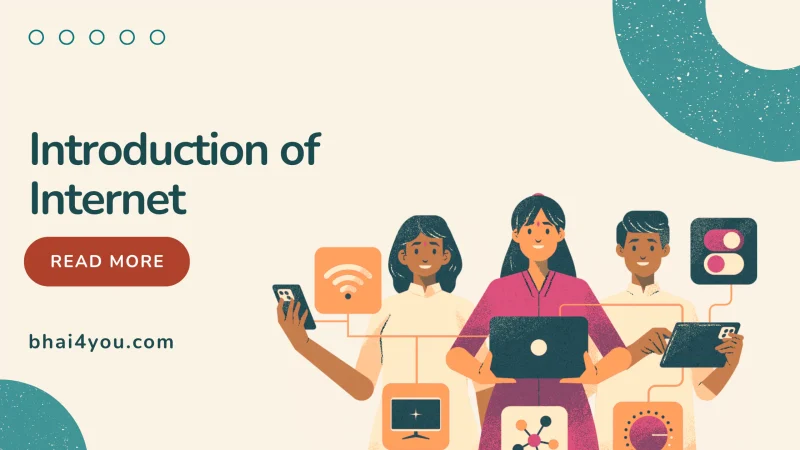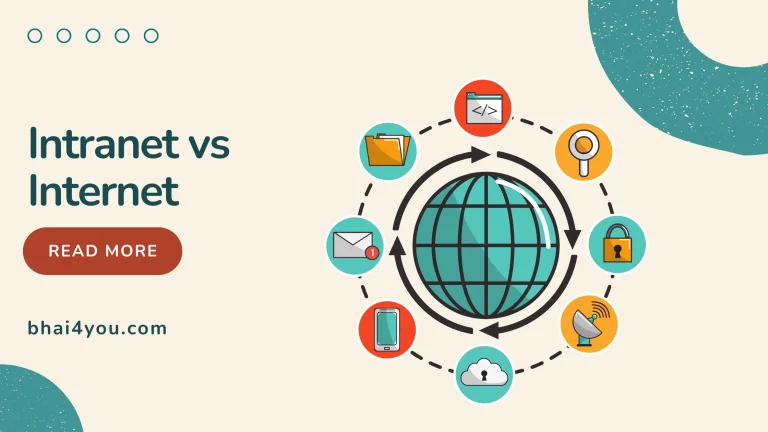Introduction of Internet
The Internet is a global network that provides access to the World Wide Web and billions of computers worldwide. Billions of computer users worldwide are connected through the usage of TCP/IP, the standard internet protocol suite. In order to put it up, cables like optical fibers and other networking and wireless technologies are used.
The internet is now the fastest way for computers all around the world to send and exchange data. The most significant tool and well-known resource that practically everyone on the planet uses is the Internet.
Millions of computers, webpages, servers, and webpages are all connected via it. We may send our loved ones emails, pictures, movies, and notes by using the internet. Put differently, the Internet may be defined as a vast, globally interconnected network of computers and other electronic devices that support the Internet. It establishes an internet communication channel for information sharing and retrieval.
Only you will have access to all of the apps, websites, social networking apps, and a plethora of other services if your device is online. These days, the fastest way to communicate and receive information is over the Internet.
Table of Contents :
History
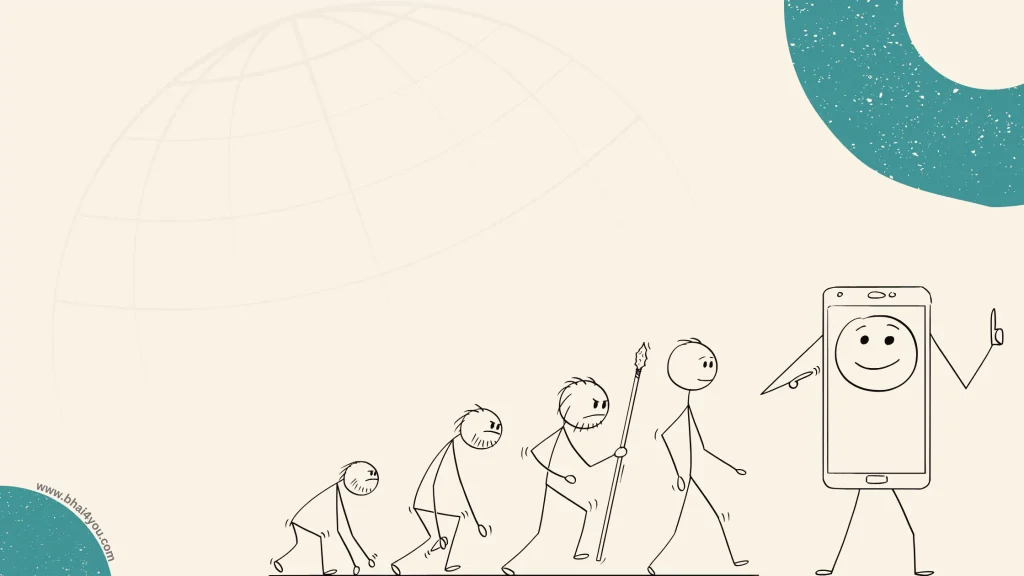
The foundation of the Internet’s history may be found in information theory and the efforts of engineers and scientists to create and link computer networks.
The collection of guidelines known as the Internet Protocol Suite, which is used to exchange data between networks and devices on the Internet, was developed in the United States via research and development.
International cooperation was also engaged, especially with researchers in the United Kingdom and France.
When computer science was just getting started in the late 1950s, it started to think about how computer users could share time with one another and eventually investigate if this could be done via wide area networks.
The concept for a universal network was created by J. C. R. Licklider at the Advanced Research Projects Agency (ARPA) of the US Department of Defense (DoD) at the Information Processing Techniques Office (IPTO). Separately, in the early 1960s, Paul Baran of the RAND Corporation proposed a dispersed network based on data in message blocks, and in 1965, Donald Davies of the National Physical Laboratory (NPL) came up with the idea of packet switching and suggested a national commercial data network for the United Kingdom.
In 1969, Lawrence Roberts and Robert Taylor won contracts from ARPA to establish the ARPANET project. ARPANET embraced the packet switching technology developed by Davies and Baran, which was supported by mathematical research conducted by Leonard Kleinrock at UCLA in the early 1970s.
Bob Kahn was part of the team at Bolt, Beranek, and Newman that created the network.
In the 1970s, a number of pioneering packet-switched networks that investigated and offered data networking came into being.
Usage of Internet
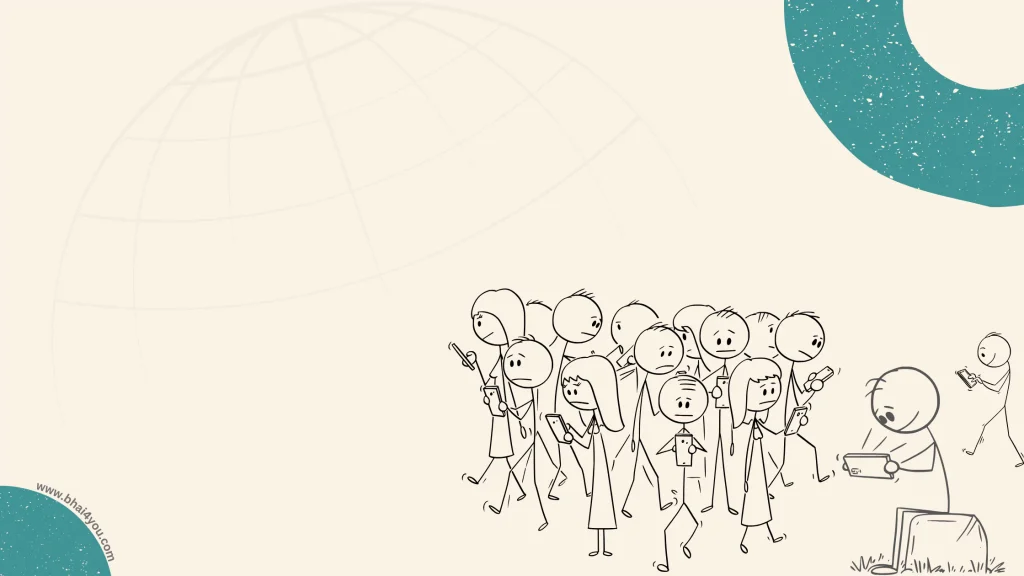
The Web may be utilized to trade data with individuals all over the world, communicate over awesome separations, and find data or answers quick on nearly any subject.
Here are a few cases of particular employments for the Web :
1) Utilizing social media and substance sharing.
2) Instant informing, video conferencing, Web Hand-off Chat (IRC), Web communication, and e-mail are all illustrations of electronic communication. These all are utilized through the Web.
3) Get to to online degree programs, courses, and workshops for instruction and selfimprovement.
4) Searching for occupations: To publicize accessible positions, yield work applications, and contract candidates distinguished on social organizing destinations like LinkedIn, both bosses and candidates utilize the Web.
Social Impact
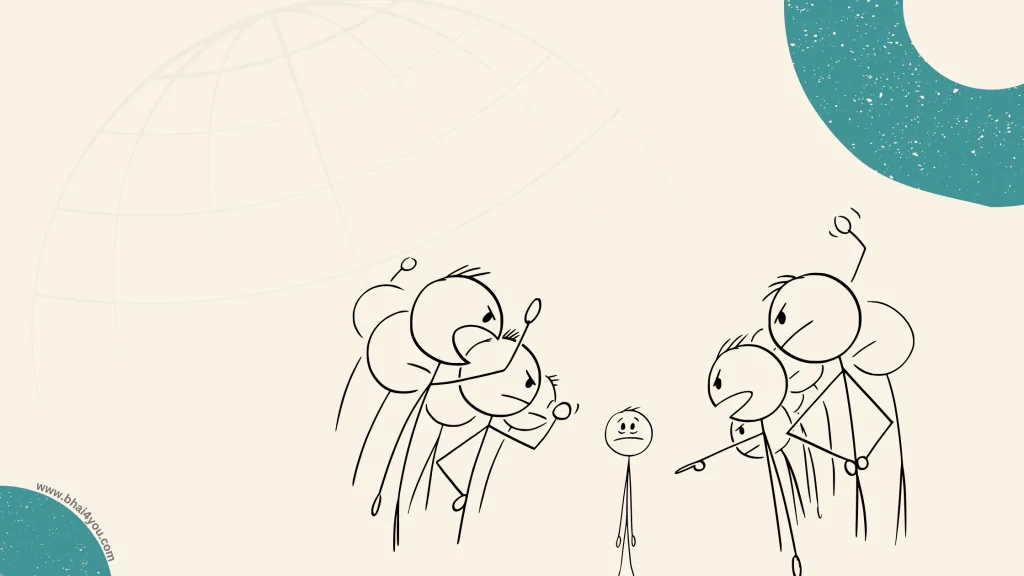
The social affect of the Web can be seen in both ways. A few say it features a positive affect because it makes a difference in gaining civic engagement, etc. though a few say it encompasses a negative affect because it expanded the chance of getting tricked by somebody over the web, getting withdrawal from society, etc.
Anything the affect of Social Media, one thing is that it changed the way of interfacing and collaboration with others in society.
The number of individuals increasing day by day on social media stages which makes a difference in developing modern connections over social media, modern communities are made on social media within the interest of the individuals.
Social Media stages like Facebook, Instagram, LinkedIn, etc are the foremost utilized social media stage for both person and commerce purposes where we are able communicate with them and perform our assignments.
Advantage

Online banking and transactions : Internet allows us to transfer money online through the online banking system. Money can be credited or debited from one account to another
Education, Online Jobs, Self-Employment : Thanks to the Internet, we can get more jobs through online platforms like Linkedin and reach more job providers. On the other hand, self-employment has helped young people earn a side income and the best part is that all of this can be done through the INTERNET.
Entertainment : There are many entertainment options online: we can listen to music, play games, watch movies, web series and listen to podcasts, YouTube itself is a hub of knowledge as well as Entertainment.
New Location : The Internet has given us access to social media and digital products. So, we have many new job opportunities like digital marketing and social media marketing. Online businesses are making huge amounts of money simply because the Internet is the way for us to do it.
Communication : Communication barriers on the Internet have been removed. You can send messages via Email, Whatsapp and Facebook. Voice chat and video conferencing are also available to help you hold important meetings online.
Human amenities : Without physical effort, you can do a lot of things like online shopping, from stationery to clothes, from books to personal belongings, etc. You can book train tickets and flight tickets online.
GPS Tracking and Google Maps : Another advantage of the Internet is that you can find any road in any direction and areas with less traffic by using the GPS on your mobile phone your.
Disadvantage

Waste of time : Wasting too much time on surfing the internet social networking applications and doing nothing will reduce your productivity instead of wasting time surfing social networking applications you should use Use this time to do something more skillful and even more productive.
Adverse health effects : Spending too much time on the Internet will lead to negative effects on your health. The physical body needs outdoor games, exercises and many other things. Looking at the screen for long periods of time causes serious damage to the eyes.
Cybercrime : Cyberbullying, spamming, viruses, hacking and data theft are some of the most common crimes today. The system that holds all your confidential data can be easily attacked by cybercriminals.
Effects on Children : Young children depend a lot on watching movies on the Internet and playing games continuously is not good for their overall personality and social development.
Bullying and spreading negativity : The Internet has provided a free tool in the form of a social media application for all those people who always try to spread negativity with very disgusting and ugly messages tigers and trying to threaten each other, that’s bad.



